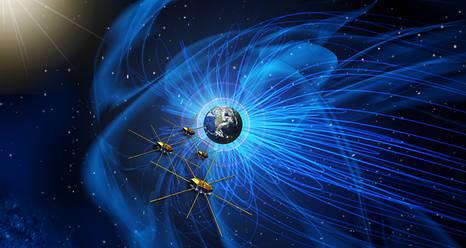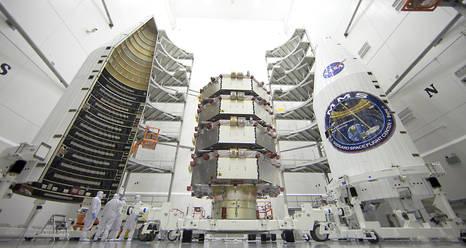
After sunset Thursday, NASA’s Magnetospheric Multiscale Mission will blast off from Cape Canaveral, Fla. The mission’s goal is to study the phenomenon of magnetic reconnection, a process by which energy is transferred from the sun's solar wind to Earth’s magnetosphere.
The University of Colorado Boulder’s Laboratory for Atmospheric and Space Physics will serve as the operations center. Both graduate and undergraduate students will be tasked with sending instructions to the 100 instruments on four, identical spacecraft that will be collecting data and sending it to scientists on the ground. For the first few months, these students will work alongside scientists to adjust the equipment, some of which was designed and built at the laboratory to optimize its performance in space.
“I’m really getting in from the get-go,” says Sean McGill, a graduate student in aerospace engineering. “I’ve been working on this before launch and I’ll be working on it during commissioning. So I’m really excited to see what its like to commission a new spacecraft.”
The data that the mission will collect may have far reaching implications for the study of physics.

“It’s going to change the textbooks coming out in the future once we better understand this,” said Bill Possel, director of mission operations and data systems at the lab. “We think we understand this, but until we put real spacecraft up there with real instruments and measure things that are happening, we can’t really confirm that our theories are correct.”
The MMS Mission launches at 8:44 p.m Thursday. It will be broadcast live by NASA. McGill says his teams is having a small get-together for the launch. NASA invites you to have your own launch party here.









